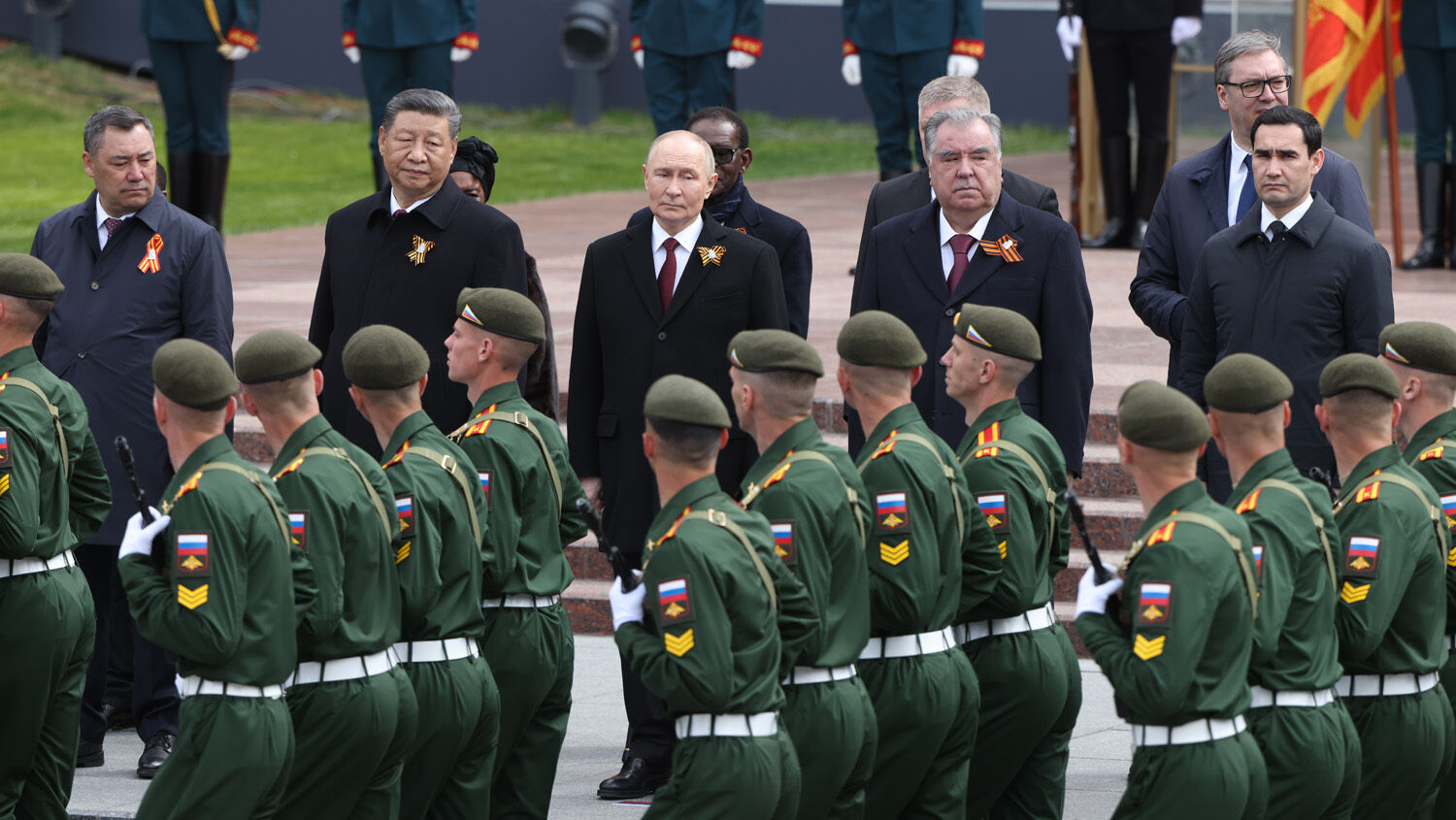
Will Russia Start a New Balkan War?
May 9 in Russia was Victory Day, celebrating the Allied defeat of Nazi Germany at the end of World War ii. With this year’s Victory Day coinciding with the 80th anniversary of the conflict’s end—and with Russia over three years on in its invasion of Ukraine—the celebration carried more symbolism than usual. Thousands of soldiers marched through Moscow’s Red Square while President Vladimir Putin spectated. Chinese President Xi Jinping, Palestinian Authority President Mahmoud Abbas and other prominent world leaders also were present, showing that the Ukraine war has not made Putin as isolated as many in the West hope. One of the celebrations involved a life-size replica of Berlin’s Reichstag for Russian troops to storm—even while the German government, housed in the same Reichstag, is sending weapons to Ukraine to use against Russia.
One of Putin’s most provocative moves may have been among his least noticed. Among the world leaders visiting was Milorad Dodik, president of the Serbian region of Bosnia and Herzegovina. It was provocative because, in Bosnia, Dodik is a wanted man.
Bosnia and Herzegovina is divided into two political entities. The larger of the two, confusingly named the “Federation of Bosnia and Herzegovina,” is primarily populated of Muslim Bosniaks and Croats. The Serb-majority entity is Republika Srpska (literally the “Republic of Serbland”). Dodik has been ruling Srpska since 2022.
The 1995 Dayton Accords which ended the Bosnian War formed Srpska to give Serbs local autonomy while keeping them within the Bosnian federal government based in Sarajevo. Dodik has been pushing for Serb independence from Bosnia and Herzegovina. He has withdrawn federal institutions from Srpska’s territory and called for Srpska to secede. He even established an illegal army. In February, a Bosnian court sentenced Dodik to a year in prison and banned his political activity for six months because of his push for independence.
Soon after Bosnia’s government announced its arrest warrant, Dodik made an earlier visit to Moscow. He said nothing about his legal situation, but the timing suggested he was making a statement that Russia would defend him. During the first trip, he uploaded a video on X stating that Vladimir Putin was a defender against historical revisionism and Western globalists.
On April 23, Bosnian police tried to arrest Dodik while he was in a Sarajevo suburb on business. They failed—because heavily armed Srpska police prevented them by surrounding Dodik. The situation deescalated. But Bosnian federal police literally had a standoff with Serb police protecting their leader.
This could have easily been the spark to send Bosnia back into civil war.
This isn’t an endorsement of either side of Bosnia’s conflict. It’s hard to argue that Bosnia and Herzegovina is a sovereign country. Ultimate political authority is not in any local elected official but in the Office of the High Representative, a foreign-appointed official with veto power over Bosnia’s laws, currently held by the German Christian Schmidt. Many people in Srpska see Bosnia’s current government as an illegitimate viceroyalty used by the West to cement its power.
But tensions between Bosnia’s two main factions are reaching a boiling point. It wouldn’t take much to throw the entire country back into civil war.
Russia knows this. Srpska has an army only because of Russian military exports and Russian mercenaries giving training. Russia gives Srpska diplomatic protection in international forums. Serbs and Russians hold close cultural links with a common Slavic and Eastern Orthodox heritage. But it is unlikely that Putin’s sponsorship is based entirely out of altruism. For Putin, stirring Bosnian Serb separatism is a cheap, easy way to create a major geopolitical crisis in the heart of Europe. He has already demonstrated he is willing to fight a proxy war against the West in Ukraine. Are Europeans certain Putin wouldn’t want to create even more chaos with another Balkan war? Does anybody want to test him to find out?
When Russia annexed Ukraine’s Crimean Peninsula in 2014, Trumpet editor in chief Gerald Flurry wrote: “The move shocked the world. Most of all, it shocked Europe.” He continued: “Thus, Russia succeeded in swallowing another nation’s sovereign territory—and the world did almost nothing. This terrifies Eastern Europeans. It is the kind of action that many assumed had ended forever once the Soviet Union fell.”
That was over 10 years ago. Since then, Putin has proven he is willing to sacrifice the lives of hundreds of thousands of Russian soldiers to redraw borders in Russia’s favor. Most countries in Eastern Europe especially are frightened with how far Russia is willing to push at them. Bosnia is only a few hours’ drive from Italy. Any crisis there could spill over into Western Europe.
Bosnia’s political crisis is near a breaking point. It wasn’t that long ago when the country was in civil war. The underlying causes for that division still exist. Putin has many cards to play—such as a guarantee of military or diplomatic support, or increased arms shipments—to spark a full-blown war.
In the Ukraine war, most European countries have declined to get directly involved. That wouldn’t be the case with a Bosnian crisis. Europe through the North Atlantic Treaty Organization invaded in the 1990s. Europe still has soldiers in Bosnia. It probably wouldn’t be afraid to get involved this time around.
Bosnia’s situation can play out in several ways. But to understand the big picture, I recommend you order Mr. Flurry’s booklet Germany’s Conquest of the Balkans. What happened to the Balkans in the 1990s was a harbinger of larger violence to hit Europe in the near future. What is happening in Bosnia today may become connected to it. Germany’s Conquest of the Balkans can help provide the necessary context of why this part of the world is so important and what we can expect ahead. Request your free copy today.
